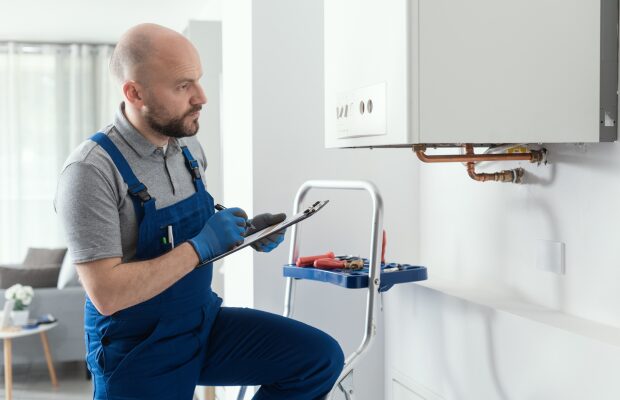Selling a house means you’ll need to navigate various legal requirements and ensure that the transaction is compliant with all necessary regulations. One crucial aspect of selling a house is the gas safety certificate. What exactly does this mean for sellers and buyers?
What is a gas safety certificate?
A gas safety certificate, also known as a Gas Safety Record, is a legal requirement for landlords. It ensures that all gas appliances, fittings, and flues are safe for use. This certificate must be issued by a Gas Safe registered engineer and renewed annually. Landlords must provide a copy to tenants within 28 days of the check and to new tenants before they move in.
Related: What are title deeds and what happens if you lose them?
Legal obligations
If you’re selling a house with gas appliances (such as boilers, ovens, or heaters), you are not legally required to provide a gas safety certificate to the buyer. However, you must ensure that all gas appliances are safe for use. It’s advisable to have a recent gas safety certificate or a record of recent checks to assure potential buyers that the property meets safety standards.
Implications for sellers
While not mandatory, having a valid gas safety certificate can expedite the selling process and build trust with buyers. It demonstrates that you have maintained the property adequately and can provide peace of mind regarding the safety of gas appliances.
Related: Selling your home ‘as-is’: pros and cons for sellers
From a buyer’s perspective
As a buyer, it could be useful to inquire about the gas safety certificate during the conveyancing process. Although not a legal requirement for the seller to provide one, you can request recent gas safety records or consider arranging an inspection yourself. This ensures that you’re aware of any potential gas safety issues before completing the purchase.
What certificates do I need to sell a house?
There’s an abundance of documents involved in selling a house, including:
- Identification – As a seller, you’ll need proof of your identity and address. This could either be a driver’s license or a passport.
- Proof of ownership – You must provide a legal document which proves your ownership of the property you’re selling. Your title deeds are stored digitally by the HM Land Registry and provide details about the home’s ownership history. You can obtain these documents through the Land Registry website.
- Building regulations certificate – If the electrical work on a house was changed after 2005, you need a Building Regulations Certificate for Electrical Work in order to sell it.
- Energy Performance Certificate (EPC) – Your home’s EPC rating shows your home’s energy efficiency score. You’ll need a valid and up-to-date EPC to sell your home.
- Planning permissions – If you have made any alterations to your property, a planning permission certificate will be required to prove that the works were carried out legally.
While you can technically sell a house without a gas safety certificate in the UK, it’s in the best interest of both parties to prioritise safety and transparency. Sellers should ensure that gas appliances are regularly maintained and consider obtaining a gas safety certificate to facilitate a smoother sale. Buyers should also be proactive in verifying the safety of gas appliances to protect themselves and their investment.
If you’re thinking about selling your home, contact your local Parker’s branch today







